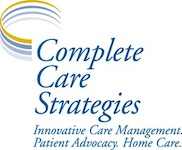If you’re fortunate enough to have one or both parents still living, you may have noticed a role reversal taking place in your relationship. Remember the days when Mom shuttled you to the doctor whenever you were sick? Now, it may be you who’s driving her to her medical appointments. Perhaps you’ve become even more involved in managing her healthcare needs – serving as her healthcare proxy, moving her into your home to care for her, or even having to select a nursing home for her to live in.
Whatever the case, it’s natural to feel challenged – and, yes, intimidated – in the role you’ve undertaken. But if you stay positive and proactive, you’ll be in a great position to advocate for your parents’ optimal care. And, really, what better way is there to say “Thank You” for all they’ve done for you over the years?
Six Tips to Help You Help Them:
1. Stay vigilant to sudden changes.
Typically, sudden changes arrive from sudden problems. Your elderly father who becomes confused one week but was alert and oriented the week before, or becomes unsteady walking and starts falling, is likely experiencing an acute problem – an infection, medication side effect, or perhaps, a heart attack or stroke.
If you pay attention to your parent’s baseline health and behavior, you’ll be alert to sudden, and subtle, fluctuations. Being attuned to what’s “normal” for your parents is critical in advocating for their care. By informing their physician of these changes, you help ensure that they receive a proper diagnosis and timely treatment.
2. Investigate the source of gradual decline.
A host of conditions can cause gradual decline. Before jumping to the conclusion – as many people do – that Alzheimer’s disease is the culprit, recognize that your parent may be experiencing an altogether different problem: a vitamin B12 deficiency, an under active thyroid, Parkinson’s disease or depression, to name a few. When discussing your parents’ decline with their physician, make sure you both consider all the possibilities.
3. Know your parent’s medicine cabinet.
Familiarize yourself with the medications your parent takes: what each one is for and how often he takes them. You also want to tell the doctor whether your parent drinks alcohol or caffeinated drinks and whether he smokes, as these substances can affect some medications’ efficacy and safety.
4. Discourage ageist attitudes.
Ageism is prejudice against the elderly. It can be damaging to an older person’s self-esteem when it assumes that all of her woes are age-related. By chalking up everything that ails your parent to her age, you sell her short.
5. Address not just symptoms – but emotions, too.
There is disease and then there is “dis-ease” – that is, a lack of ease, security or well-being. “Dis-ease” can manifest itself as myriad emotions in an elderly person: fear, grief, boredom, embarrassment and sadness among them. These emotions can be every bit as debilitating as disease.
6. Strive to maximize your parent’s quality of life.
No matter our age, we all want to enjoy life to the fullest and have the capability to do the things we want to. Improving the enjoyment of life and a patient’s functional ability are the cardinal goals of geriatric care. But you don’t need a medical diploma on your wall to help your parent achieve either of those goals.
Being There Is the Best Care
Being there to solve a problem or provide company are tremendously worthwhile services you can provide. Remember, as your parent gets older, his quality of life becomes more important to him than how much longer he lives.
The Gift of Love
If he enjoys books but has difficult reading regular-sized type, check out sight-saving titles at the library. If he’s living in a nursing home, bring your kids there to share a meal with him. Sometimes, it’s the small gestures that have the most profound impact. As the child of an elderly parent, you are uniquely positioned to deliver these life-changing gifts.
About the Author
Lois Young-Tulin, PhD, is an Assistant Geriatric Care Manager at Complete Care Strategies
